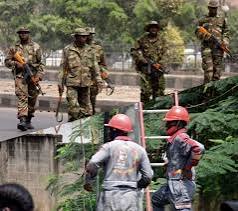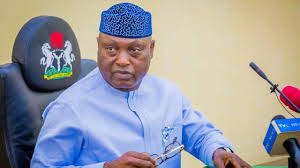Stakeholders task FG on exclusion of Abuja indigenous peoples

Stakeholders task FG on exclusion of Abuja indigenous peoples
By Samuel Ogunsona
Civil society groups from Nigeria and across Africa and ancestral peoples of the Federal Capital Territory, (FCT) who met in Abuja to mark the United Nations World Day of Indigenous peoples have expressed deep concern over what they consider as the continues socio-economic exclusion of indigenous peoples in Abuja. The groups said the situation is a time bomb that should be addressed without delay.
Hundreds of stakeholders celebrated the August 09 event in the FCT with a regional conference, a workshop and a day dedicated to the promotion of indigenous heritage when thousands of indigenous peoples gathered at the Abuja Old park to showcase the culture and of their people. They insist that their land taken away represent the most significant historical injustice they suffer.
The conference organized by Resource Centre for Human Rights and Civil Education, (CHRICED) and the MacArthur Foundation was attended by hundreds of people, traditional rulers from the various kingdoms, Government Officials, Civil Society Organisations, (CSOs), Executive Director, CHRICED, Mr Ibrahim Zikirullahi, the media, labour, peasants, several representatives of indigenous peoples Environmental Rights Action, (ERA), Prof A B Ahmed of the Faculty of Law, Bayero University, Executive Director,Centre for Transparency and Accountability, (CTA), HRH Alhaji Ismaila Danladi Mohammed, Journalists for Democratic Rights, (JODER), and the members of the FCT Original Inhabitant Association. There are nine indigenous ethnic groups in the FCT namely the Gbwari, Koro, Bassa, Ebira, Ganagana, Nupe, Gade, Gwandara and Dibo
Since 1976 when the Nigerian Capital was moved from Lagos to Abuja, the original owners of the land claim that have been subjected to all forms of socio-cultural repression. They said peanuts was paid to them which does not meet up to the worth of their land.
In a communiqué issued at the end of the National stakeholders dialogue on Rights of Original inhabitants of FCT and signed by Dr Ibrahim Zikirullahi and leaders of several civil society groups the stakeholders said the bottled up anger of indigenous peoples in the FCT should be addressed to avoid possible outbursts. The conference theme was Building Resilience, Fostering Recovery: FCT Original Inhabitants And the Struggle for Social Justice.
The stakeholders said indigenous peoples are distinguished by their ancestral land, their distinct language, culture and time honoured values which are treasured and have been preserved for centuries;
They noted that in Nigeria, the rights of indigenous peoples in the FCT are a major challenge in the search for sustainable development, peace and stability
The stakeholders in the communiqué said ‘we are aware that the Original Peoples of the Federal Capital Territory, (FCT) are indigenous to their territories, their ancestral land which they have lived for centuries. That they own the land; the land is their livelihood, their dignity and pride; they have cultivated the land which is their greatest material and spiritual assets.’
That the indigenous peoples in the FCT are about nine with their own culture and civilisations that continue to face existential threats from various dimensions;
Participants noted that in 1976, the history of Original People of FCT was deconstructed with the movement of the Federal Capital from Lagos to Abuja by the military government. The movement led to dramatic changes in the sociology, the land ownership, control and management effected through the military Decree 6, all of which affect the past, present and future of FCT indigenous peoples;
‘That indigenous peoples in FCT are recognised by their own history and values backed by international instruments including but not limited to International Convention in Indigenous Peoples, the ILO Convention 168 all of which emphasise the protection of indigenous peoples including their intellectual and cultural property”
On December 23, 1994, the UN General Assembly resolution 49/214 adopted the International Day of Indigenous Peoples to address the fears over ancestral land and associated lost resources.
The communiqué said that the FCT 1976 Decree 06 has affected the history, spirituality, indigenous knowledge, environment, culture, civilisations and heritage of indigenous peoples of the FCT;
‘That indigenous peoples in the FCT have been consistently denied their right to land and capacity to own property in a territory that historically belongs to them. Other forms of discrimination and exclusion manifest through denial of access to ancestral land, lack of economic, political, cultural opportunities and identities, denial of statehood, denial of access to utilities like health, quality education and job opportunities’ they said.



